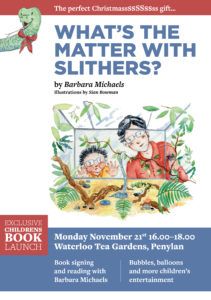![]()
The Cardiff Fringe Theatre Festival has been the host of three events (this included) that I’ve been to recently, and each of them have all been astoundingly wonderful. Though the festival ends tomorrow, I look forward to its (hopeful) return. I hope it does return, I very sincerely do. I’ve had an incredible time, and seen some doubly incredible things.
Stories For The Silver Tree was one of these incredible things. I went in totally blind (I knew there was a trailer but elected not to watch it – I’ve always liked to go into theatre blind, I’ve found it makes me more open to plots and characters if I don’t look them up first).
The concept of this showing was amazing. I thought it was going to be a play. Like, a traditional, people-play-the-characters play. But it wasn’t. And I think it was better.
Instead of this, it was Tamar Williams and Darius Nash narrating and telling the audience (and singing, too – which was really good and something I enjoyed very much) the story of the main character (Bran). They also used clever sound technology which I’ve never heard of or probably could understand the mechanics of but, at face-value (which is how I tend to take things): It was very impressive and amazing. Using sounds from the audience or from props put on a loop right there and then during the performance to put more depth into a scene is something I’ve not seen before – and I loved it so much. Although, at the mention of audience participation, I did get nervous – but it turned out brilliantly.
The story was also so atmospheric. From the brainy sound tech, yes, but from the writing and the deliverance, I think for the last few hours I’ve been somewhere else; lost in pretty words and lovely scenery up in my head. That’s irreplaceable to me. I love and have always loved things that can make me feel like this. One phrase that stuck out to me was, “the turquoise of evening and the navy of night”. These words just fit together so nicely, and they were delivered so wonderfully (that made me remember them! Although I’m not sure I’ve got the direct quote right) that it made my experience of Bran’s story so much more meaningful.
I don’t know! It was very cute. And folk-y. And magical. And I just loved that all of that was wrapped up together and given to me as an innovative story, rather than a traditional play.
Although the festival ends tomorrow, and I am sad to watch it go, as today was my last day to experience it, there is another showing of Stories For The Silver Tree tomorrow, which I wholeheartedly recommend seeing! http://www.cardifffringetheatrefestival.co.uk/events-list/2017/7/22/stories-for-the-silver-tree. Which is why I gave it 5 stars! It was delightful.
Also, more could be found at the Twitter pages of the performers: https://twitter.com/darius_nash , https://twitter.com/tamareluned.
Tag Archives: Review
Review: Cardiff Fringe Theatre Festival Poetry Night by Sian Thomas
![]()
I’m so glad I got the opportunity to go to this poetry night. I’m so glad that the Cardiff Fringe Theatre Festival exists, and is doing events like these. It actually makes me unimaginably happy far beyond belief.
I spent a whole night lost in words and poetry and prose and it was so, so wonderful. I was perfectly in my element – in a cute little cafe with fairy lights, a room full of people who all share my interest, watching the sky darken around us in a room, comfy chairs, supportive people. All of it was enthralling and it just made me so, so happy.
I love to hear other people’s writing. Something about it is so soothing and comforting and soft and just so easy to fall into and gladly lose myself in. Picturing the scenes behind story words and feeling the emotion behind poetry is just such a magnificent experience, and an irreplaceable one.
It was so much fun to watch other people prep themselves and share their own writing – which I know is something incredibly personal and sometimes hard to put out there into the world. But everyone was so supportive, and that was so amazing to see.
I, myself, had reservations about reading some of my own personal writing. I was sold that I wouldn’t be reading any up on the floor that I didn’t bring any with me. I saw other people do it, and a part of me started to feel okay -nervous, but okay – with the idea of actually getting up there and doing the same. I got the confidence to read aloud, and I did.
The wonderful hostess, Alice Downing, was comforting and supportive and the perfect person, I think, to host and guide this event. I don’t think I’d have read my own work out loud if I hadn’t seen how passionate and encouraging she was to everyone in attendance.
I had such a delightful time, and I’m so thankful that I heard about these events and went to them.
The Fringe Festival isn’t over yet, too! There are multitudinous other events happening, stretched up and down Cardiff, and each I’m sure is as incredible as the last. http://www.cardifffringetheatrefestival.co.uk/whats-on/
Review Funny Girl, WMC by Eloise Stingemore
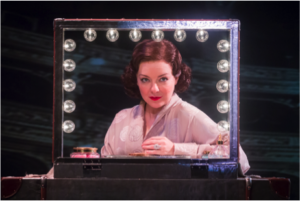
 (5 / 5)
(5 / 5)
Sheridan Smith makes a joyous return to theatre in the role of Fanny Brice, for the first leg of the UK tour, after a celebrated run in the West End, bringing her own brand of exuberant mischief and spiritual warmth to the role.
Funny Girl is a bio-musical albeit more fiction that fact about the popular American singer-actress and comedian who was long associated with the Ziegfeld Follies. One of the biggest stars of the early 20th century, Brice lit up both Broadway and Hollywood with her comedic style and powerful voice. A hundred years later (1968), Barbra Streisand won an Academy Award for her portal one of America’s greatest clowns and a true icon of both stage and screen.
Smith was more than capable of overcoming the towering memory of Streisand in the central role, which is no mean feat, with her belting vocals, electable comic timing, assured dancing, earned her an unquestioned standing ovation. It is safe to say where audiences admired Streisand they adore Smith. In her hands, the lively Brooklyn joker is an intricate tangle of competing emotions, all covered up with a big, bright, Broadway smile.
The songs, in particular, Smith makes entirely her own, even though her voice isn’t exactly beautiful, it aches with conviction. Her tremendous rendition of People is steeped in yearning but also cut through with defiance. Whereas Don’t Rain on My Parade, Smith avoids brassy rhetoric to suggest a lonely woman exulting in her newfound happiness. All of which helped to strip the layers of armour-plated implacability to make Fanny a more likeable human being.
As for Darius Campbell, despite looking good in a ruffle shirt and singing each note pitch perfect he was unable to find much colour and variety in the one-dimensional character Nick Arnstein, a part made famous on screen by Omar Sharif. The best support for Fanny comes from Rachel Izen as Mrs Brice her aspirational mother and Joshua Lay as her lovingly loyal dance teacher, Eddie Ryan. Whereas the ensemble tap and ballet numbers from the talented cast were a joy to watch, but were ultimately there to simply support a superstar, Smith. Who has the presence and talent to wilt the hardest hearts, and deserves a packed out auditorium for the rest of the run.
For tour dates and ticket information click here; http://www.funnygirlthemusical.co.uk/uk-tour/
Review: Alien Rain by Ruth Morgan By Sian Thomas
![]()
This review contains spoilers.
I recall seeing this on the Twitter page of I Loves The Diff’, which is what got me intrigued to read it.
Alien Rain by Ruth Morgan pulled me in for two reasons. Firstly, it was more of a sci-fi novel, and as someone trying to widen my horizons when it comes to reading, this struck me as a good a place as any to go to try something new. Secondly, the book is set in Cardiff. It’s firstly set in Cardiff (but on Mars), so the names of well-loved streets and public places are used here and there, but later is set in real, Earth-Cardiff.
I enjoyed an incredible amount that the novel was set in Cardiff (both on Earth and on Mars). This is something I have not experienced before. The closest I’ve ever come has been the Welsh theme of The Raven Cycle by Maggie Stiefvater, or the occasional mention of a Welsh name in the webcomic, Homestuck. I’ve never seen something be based in Cardiff so heavily – and it was wonderful to see. However, I do worry that this was the only aspect of the book that I really liked.
While the sci-fi elements of it was good, I found it a little sad to hear the descriptions of a ruined and decrepit Cardiff. After all, I live here, and it’s still bustling and full, and I like that. To hear that Animal Wall was gone, or the Museum was falling apart, or that Cardiff Castle was more ruin than attraction, was a bit disheartening to envision.
The plot itself wasn’t too bad. I liked the message that intelligence can thrive in ways other than purely academic, and with that, the message that there is worth to be found in people outside of their academic achievement. As a student currently waiting for some exam results, this was pretty nice to hear, and eased my conscience up just a little.
However, my biggest bother with this book was the presentation of some of the characters. I usually consider myself easy to please, when it comes to literature. I usually find reasons to love characters anyways. I often welcome a love interest with open arms, and usually am able to trudge through a plot even if I find it particularly difficult to, or if it doesn’t sit well with me. This book was different to that, and I got more grateful that I was nearing the end with every page flip. I didn’t mind the flowering relationship between Bree (our female main character) and Halley (the male love interest), as it seemed a simple and innocent enough relationship that I could get behind. However, it was later found that Halley initiated the characters’ friendship and by extension, relationship, on being bribed to do so for the easiness of a science experiment – so it was fake. My biggest criticism of this is that when called out on this by Bree, Halley said:
(Halley): “Bree, you’ve got…”
“Don’t tell me I’ve got it wrong!” I (Bree) laughed.
“I was going to say, you’ve got to forgive me.”
(…)
“Why should I forgive you?”
“I’m the one who doesn’t deserve to be on this mission. I’m only here because I agreed to lie and cheat and spy on you for Carter. I am a liar, I’m despicable and I know I am. Still, you have to forgive me.”
“That makes no sense,” I said.
“Love makes no sense.”
And later,
(Halley): “I’ve fallen in love.”
“Will you stop using that word?” I (Bree) cried. “No one says that word! If you think for a moment that I could ever believe what you’re saying…”
“You have to,” he whispered. “Or I don’t know what I’m going to do.(…)”
There are so many things with this especially, which did shape the whole novel and the perception of it and other characters, that I found astoundingly bad.
This is a book in the YA genre. This is a genre that I continue to enjoy, because it was the one I experienced mostly as I started to really enjoy reading, and as of recent years, it’s becoming a wonderful and diverse genre, and one doing far better than it used to. This is a genre for people my age, and people younger. These scenes I have a problem with. While I was able to spot the problems, I’m not sure others would have, and it’s a dangerous line to blur for younger people.
Pushing forgiveness done out of love, when the relationship itself began on deceit is, firstly, not love. Expecting to be forgiven because you love someone, is not a reason alone to be forgiven. I do worry the author has made a mistake, consistently using “You’ve got to” or “You have to” as a way to make a male character feel far more forceful in wanting to be forgiven, and then using guilt to further this. A guilt trip into forgiveness when he was in the wrong just feels like poor writing, or even ignorant writing. People, especially recently, do not have the tolerance for this kind of characterisation and neither do I. I worry this would be behaviour people could attach themselves to and then look for – especially young girls who may enjoy the YA genre – and land themselves in a relationship where their feelings are not considered and their emotions are, effectively, abused.
This pushes the forcefulness of males which comes off very poorly. If a man was telling me I had to forgive him because he loved me I think I’d turn and run as fast as I could and for as long as I could go. This is a stereotype we need less of, as many, many people have coined on to its hindrance on men’s emotional well being, which needs to be addressed as much as hindrance of women’s chances in society, as this scene and beyond it only pushes the submissiveness of Bree, which goes against the rest of her character established through the rest of the novel. She is a character that went to great lengths and seemed perfectly capable of standing up for herself – until giving in and forgiving when Halley got hurt in a later scene, and then jumping straight back into action into her much stronger female role, which had already been established.
I’m angry. And I expected better of a book published so recently (2016), and a book written by a woman. A part of me feels let down, and I’m hoping the next book I read will bring my spirits back up.
I still give the book 2 stars. I did still enjoy that it was set in my hometown, which made it slightly more enjoyable, and on some level, I did enjoy the sci-fi story.
Review: The Cardiff Fringe Theatre Festival Launch by Sian Thomas
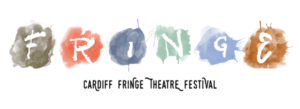
![]()
The launch party of the Cardiff Fringe Theatre Festival was one I wholeheartedly enjoyed attending, and am glad I did so. The launch party promoted the upcoming Fringe Theatre Festival, (and more information about that can be found at their own website: http://www.cardifffringetheatrefestival.co.uk/) as well as talk of their sponsors, and the events and activities planned.
The launch party consisted of a lot of mingling at first, but betwixt such there were three performances, which I believe were all wonderful.
The first was a snippet of a play called Three Days, with a touch of realism and the intrigue of drama that I thought was fairly enjoyable. As a snippet, I was not aware of the context of the piece, but focusing solely on what I did see, I did enjoy. There was a part that particularly stuck out to me. There was an instance where the characters were discussing their occupations and how they’re treated in them due to their age. I put a lot of attachment to that, as sometimes I worry about pursuing my chosen career and being hindered because of my age. So, it was nice to see characters I could relate to like that, even if only briefly.
The second performance was one I enjoyed very much, and the comedy element to it was nice to see. I don’t recall having seen theatre based on comedy recently, so this was a nice new feeling.
The third performance was the one I think I enjoyed the most. Two poems were performed by Alice Downing (the marketing director of the Fringe Festival), and both made my heart feel a little bit softer and made me appreciate words and how we all use them so much. I already love and cherish words and writing and poetry, so hearing another’s is always time well spent to me, so it really was a wonderful time. Also, and not to drag this back up but, it was really funny when she flubbed a word, and managed to laugh along with the rest of us in the audience.
Each performance was well-performed, and each with different aspects that I appreciated immensely.
Based on the launch party, I have high hopes and a lot of optimism towards the fate of the rest of the Fringe Theatre Festival, and I am looking forward to attending and experiencing the other events that caught my eye. I can’t wait to see what these nights hold.
“Why I am a 3rd Act Critic” by Barbara Michaels
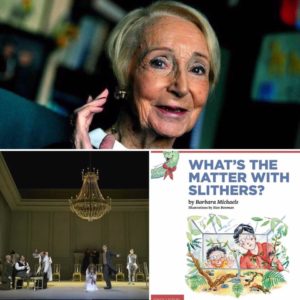
3rd Act Critic Barbara Michaels gives a personal response to being a critic with Get the Chance.
With over half a century of reviewing under my belt, I can hardly remember a time when I wasn’t passionate about both music and theatre. This was intensified when I got my first job on a local paper. I was eighteen, as the most junior member of the staff – and the only female in the days when women on newspapers were few and far between. I was expected to cover tasks such as weddings, flower shows and (to my delight) amateur dramatics.
This was a wonderful training ground which led to me covering professional theatre on my second paper. My big break came later, when I was working freelance and also running a syndication agency. The reviewer covering a first night ballet performance at the Royal Opera House at Covent Garden was ill and asked if I could do it. I have always loved dance but had never previously reviewed a dance production so cut my teeth on the Creme de la Creme. To this day dance is my favourite of all the art forms and – like all the arts – underfunded, if I had the money (which, as an OAP, I don’t) I would support.
Opera in Wales is still regarded by some as only for the elite. This is far from being the case. Please give it a try! We are so fortunate in Wales to have the WNO – a world-class opera company performing in a wonderful venue. Their production of Richard Strauss’s Der Rosenkavalier, which I reviewed recently, was as near perfection as you are ever likely to see.
getthechance.wales/2017/06/18/review-der-rosenkavalier-wno-wales-millennium-centre-cardiff-barbara-michaels/
Life is busy for me. As well as reviewing I edit a community magazine and last year published my first book for young children, entitled WHAT’S THE MATTER WITH SLITHERS? The publication of the book, shortly;to be featured in a Cardiff book festival, coincided with the birth of my first great granddaughter Chloe Jo, and I am now expecting another great grandchild.
Review: One Was Lost by Natalie D. Richards by Sian Thomas
![]()
One Was Lost was a book I picked up because I had decided I wanted to branch out a little further from my normal cheesy YA book, or my normal poetry book. I have a tendency to stick close to my comforts in a lot of areas, including reading, and this book was able to help me breach this constraint.
I had decided to stretch out further and try my hands at a story more centred on thrill, horror, mystery, suspense. For a while now, I’ve wanted to experience a book that made my chest constrict in a funny way, in a way that made me scared. I know we’ve all had our hand at murder mysteries and crime novels and even television crime dramas or horror movies, but none of those ever seemed to settle right with me, and none of them ever seemed to really be what I was searching for. One Was Lost managed to do something that a book had yet to do for me.
Most things that I read I can usually guarantee a happy ending, or at least ones where all the characters live, save for Shakespeare’s works. Most of the time, I’m pretty much certain that’s how things will go, and I usually hope for that, too (I am guilty of really, really loving a happy and pure ending). With One Was Lost, I was less sure of this, and in turn, I hoped for it much more fiercely. I wanted it to end well so desperately and was so torn that it was the a book that just might not do that, that I felt that little constraint in my chest that I had wanted to feel. As the characters got put in more and more danger, and the likelihood of a happy ending seemed to dwindle, I got more and more entrenched in the story and more and more hungry for answers and a good ending. When there was one, I felt relief and happiness so big and all-encompassing that I was sure I was a balloon that had been blown up to bursting. It was such a wonderful feeling, another I admit I am guilty of enjoying, to watch characters trudge through the unimaginable, and come out the other side. I hope my praise can reach out to the author, Natalie D. Richards, because I am brimming with it. The feelings I had throughout my read were incredible, and something I’m glad to have experienced.
All the characters are interesting, with their own little stories that fade impact and shape the bigger, overall plot. Each of them (like our main character, Sera, and the others, Emily, Jude, Lucas) were all lovable and easy to attach oneself to in different ways. All of them had characteristics I loved, and attributes I admired, and in the midst of their heavy story, it was still wonderful to see them in my mind’s eye interacting and even laughing. A brief summary can be found on Natalie D. Richards’ website: http://nataliedrichards.com/books/onewaslost/ as this can supply an explanation and introduction to the book better than I can, as I do not wish to spoil anything.
To add to this even more, the writing made this feel even more real. It was clear and concise, and unbelievably detailed. There was a period in the text where Natalie D. Richards describe the feeling of thirst so well and so closely, that I found myself feeling thirsty and scrambling for bottles of water to get me through.
I give this 4 stars. It was a good introduction to the other aspects of my usual YA genre with a far more intriguing and mysterious core, and I did enjoy the story of it incredibly so. I very much loved it.
Review: The Thief Lord, Cornelia Funke by Sian Thomas

 (5 / 5)
(5 / 5)
The Thief Lord by Cornelia Funke has been a long time favourite book of mine. I read it first about five years ago, and I remember reading it, loving it with my whole heart, finishing it, and instantly reading it again.
Once upon a time, I was recommended it. Someone that I knew once knew how much I loved the Professor Layton game, “Professor Layton and the Last Spectre”, as within this game there was a small gang of poor and homeless children who banded together to keep each other safe and warm who I took an overwhelming attachment to. The Thief Lord reminded them of these characters, and in turn, of me. And I could not be more grateful to have discovered a book that reminded me so much of characters I already loved, and created whole other characters who I loved just as much – perhaps more. Not only did these characters hold such a special place in my heart, they’ve stayed there undeterred for years. Even as I continue to consume new media and content and entertainment, there has yet to be something that knocks Cornelia Funke’s The Thief Lord from its #1 spot in my heart.
The plot is sweet, and something I loved all those years ago an equal amount as I still love it now. It is mysterious and alluring and downright fun – and to top it all off, the way it’s presented is unimaginably atmospheric, which is a factor I love an immeasurable amount. Being set in Venice, somewhere I have always wanted to go but have yet to find the opportunity to get there, it was like I got to go there for myself. And even better, it was like I got to go and I got to relive this story again and again in a place as beautiful in real life as it is in my mind’s eye.
The writing made this atmosphere even more incredible. The way Funke would describe the water and stone, the pathways and alleys, the boats and the famous buildings was mesmerising. The way it was written had a hand in shaping my own writing goals, as I also love at atmospheric touch in my own work. This has shaped me for so long and is so intrinsically a part of me that honestly I am so, so happy.
The characters are all lovely, each with their own unique personality and lovable traits. My favourites were always Prosper (our main character), Victor Getz, and Ida Spavento. I always thought, and continued to think of them, as lovable forces who would keep anyone safe – which they did. Prosper takes care of his younger brother, Bo. Victor Getz helps care for them (and the other runaway kids), as does Ida Spavento. They all just seemed like the sweetest characters, who I feel unimaginably lucky to have discovered and cherished as much as I do.
I give the book 5 stars, as it holds such an important place on my bookshelf and in my heart. It remains my absolute favourite book, and I’m sure that will continue to be the truth in the foreseeable future, and probably also beyond that. I cannot recommend it enough, especially to those who love heart-warming tale.
Review Baby Driver by Jonathan Evans
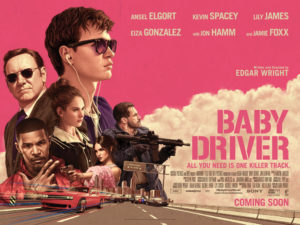
 (5 / 5)
(5 / 5)
In a movie there is the image, the score, the sound effects, the performances, the camera movement and, if so chosen, the colour. Usually one element shines or we can say that two were in great harmony, but almost never can they all be brought together, layered and baked to create one infusion of all creating a great experience.
Like what Damien Chazelle did with La La Land, Edgar Wright takes the elements, aesthetics and sensibilities of the old and create something modern with them. With that movie it was the Hollywood musicals, here it’s the pulpy heist movie.
The car pulls up outside a bank three of the people in the car get out, go to the trunk and take out guns then they slip on masks and enter. Another remains in the car, a young man that decides to lip sync along to the tune playing on his iPod. When they come back he drives. The young man behind the wheel goes by Baby.
Baby is a fresh faced young man that’s constantly plugged into his iPod listening to music with a pair of sunglasses on. He listens to music because he suffered an accident at a young age so he plays music to drown it out. Ansel Elgort plays him with swaying interest. At times wanders through life being much more interested with the music playing in his ears and others completely focused on his situation.
Baby’s employer and the one who setups these heists is Doc (Kevin Spacey) a controlling, nonsense man that goes by the mentality that it’s either his way or the highway. There’s also Buddy (John Hamm) and Darling (Eliza Gonzalez) a married couple that are like Bonnie & Clyde, happiest to be in each-others company while pulling these jobs. Then there’s Bats (Jamie Foxx) who seems more than a little unhinged, crime seems to come almost too easy to him. Naturally these are just code-names so none of the members can turn in the other as well as making the characters more easy to remember, like in Reservoir Dogs.
A an extra storytelling layer the ringing in his ear serves as so much more. We as mammals have learned to be fearful of high-frequency sounds because we used that to predict earthquakes. So that noise is cutting to a deep base instinct within us as human beings. We feel that either the situation is untrustworthy or that something bad is coming.
If you decide to make your movie in colour then you must use the colour. Most times filmmakers have a colour movie because that’s what expected of them and put no extra thought into the extra layer of storytelling they have. Not here. The movie has an appealing colour pallet of minty colours with a few deeper ones in harsher scenes. Every character has their colour which they either wear of expresses itself on the setting.
The editing, like all Wright movies, is a sleek, succinct experience with no frames gone to waste. He uses his regular tricks of panning’s combined with wipe cuts to create a seamless momentum that takes from inside, to outside, from one setting to another in within thirty seconds that would take others much longer. Other times he incorporates long shots that play like a skilful ballet between the actor and the camera. Within the moments of snappy cutting it never becomes confusing or disorientating because a) whats in the shot is simple and clear b) the colour helps to further register who it is doing what.
The soundtrack is composed with the greatest care. Edgar Wright is clearly a music enthusiast but it goes beyond that. We’ve had soundtrack’s with plenty of catchy songs in them (example Guardians of the Galaxy) but this goes deeper. This picks a song and completely dissects it in terms of it meaning, the lyrics, the rhythm and tone and infuses it into the scene. Sometimes it obviously fits the context of the scenes it picked for other times it ironically plays over a contrasting one.
One day, while getting coffee at his regular diner he becomes enchanted by the humming of a waitress Debora (Lily James). They both clearly have a love for songs and being on the road.
I have gone this far in the review without talking about what will probably be the main talking point for other critics, the car chases. They are well executed with fluid camera movements and impressive stunt driving as well as setups that are original, so much so that it’s almost like watching a martial arts fight scene with a car.
Baby Driver is a movie made by a man that loves nearly every aspect of cinema and is talented enough to draw as much as he can from every bit of footage he’s able to show you. Nothing goes to waste and is all entertaining. If you want to have fun you will be, if you wish to have an efficient, well crafted piece of cinema, you will also have that. Either way, take the ride.
Review The Graduate New Theatre Cardiff by Eloise Stingemore
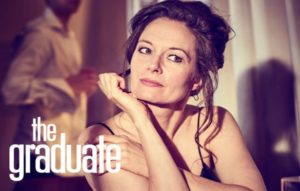
 (3 / 5)
(3 / 5)
The hit West End comedy with its unforgettable characters from the landmark novel and Oscar-winning film are brought to life on the stage of Cardiff’s, New Theatre.
Based on the novel by Charles Webb and the 1968 film, it concerns Mrs Robinson’s played by Catherine McCormack, seduction of young middle class rebel without a cause character Benjamin Braddock, played by Jack Monaghan. Who is struggling to come to terms with his future, worrying that his family expect too much from him, and feels thoroughly disillusioned. However, when seduced by long-term family friend the sensational Mrs Robinson his boredom takes a new direction. And when he has a date with Mrs Robinson’s daughter Elaine, he finally finds some meaning to his life, a meaning that Mrs Robinson opposes!
There is no denying that since it was first written and later immortalised on the big screen the world has drastically changed, which is reflected both in Terry Jonson’s adaptation and Lucy Bailey’s direction of the story for the stage. In no way does it shy away from the prejudices of that time, and in doing so gives the audience a sense of progress that we as a society have made in regards to sexism. Yet at the same time it gives you pause for thought in relation to how little progress we’ve made in some areas too – especially our ability to communicate with those around us. This theme in the play gives a great sense of amusement and laughter for the audience, especially when touching on the idea of a ‘generation gap’ in scenes between Ben and his Dad. As well as a much-needed sense of relevance, as we now live in a world where such dalliances have become the norm albeit not always outwardly accepted by those around us. Yet the idea that young people see a different future to their parents, but struggle to communicate that future, is still very much relevant albeit not as new as it was in the 60s.
However, to pull off Charles Webb’s original novel, which is a thing of beauty, takes a cast of supreme talent to pull it off. Unfortunately on this occasion, Bailey has failed to assemble such a cast; there was a lack of chemistry between the two leads and the attempt to bring emotional ballast to the piece in the second half by bulking up the role of Mrs Robinson’s daughter, Elaine, played by Emma Curtis. Turned The Graduate from being a dark, funny and beautiful satire of suburbia into a thin story about a kid who feels unsatisfied with his life, chucks his chances away and emerges relatively unscathed at the end.

